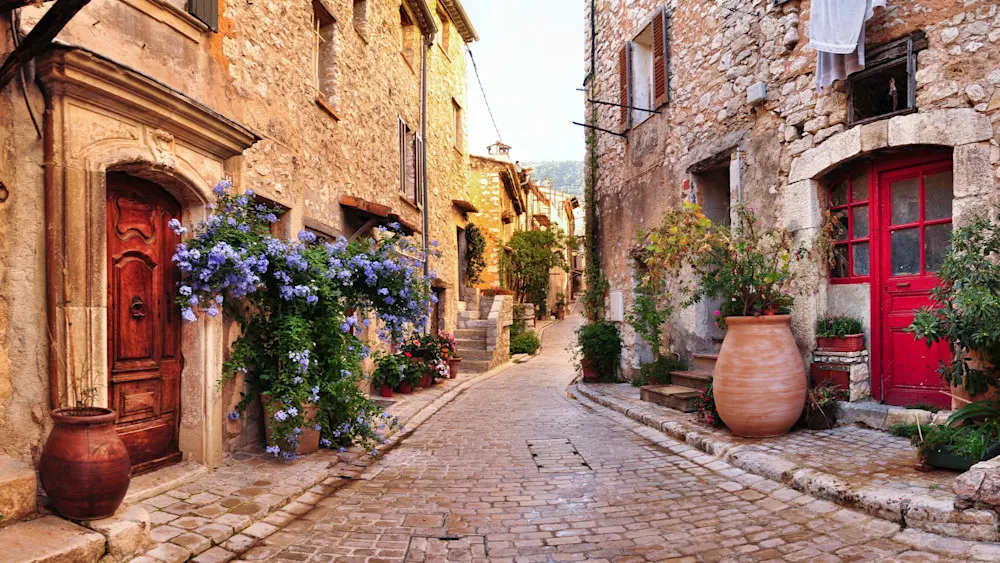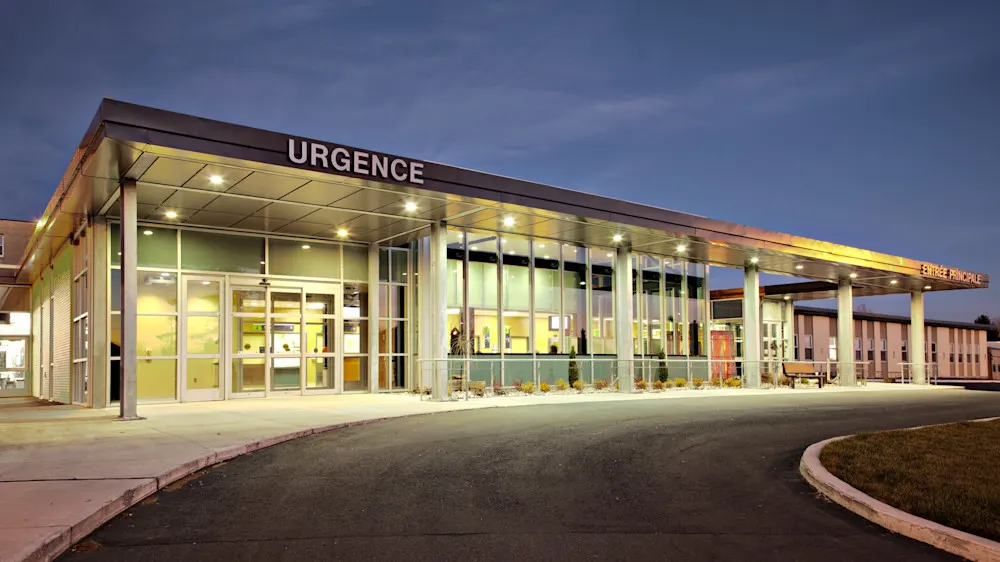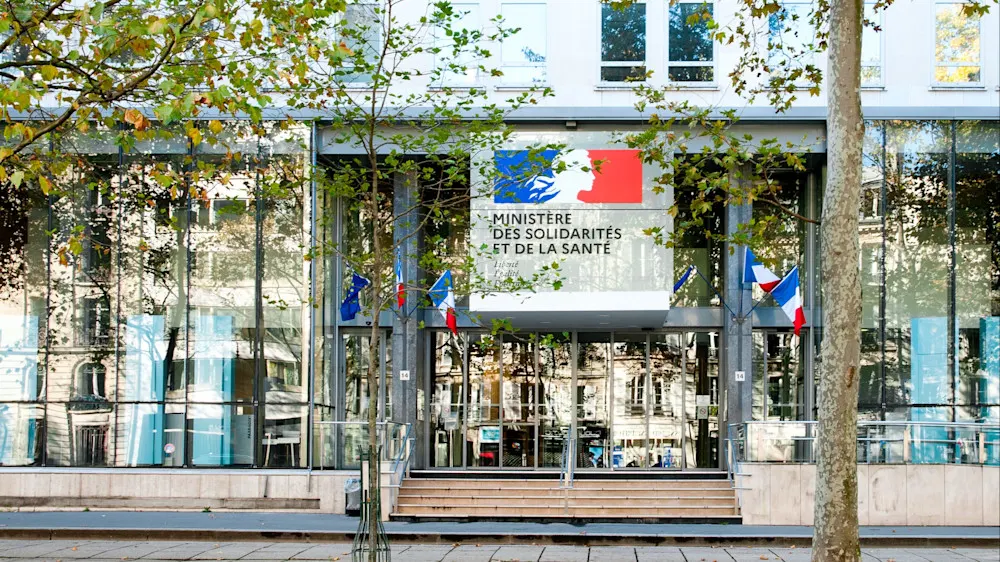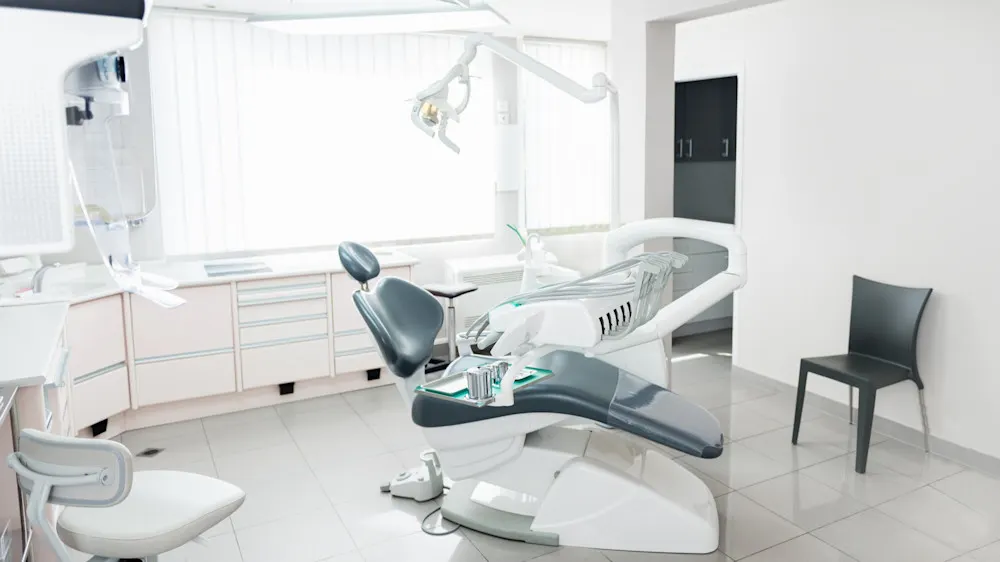While known as purveyors of “la belle vie” (the good life), the French tend to have very healthy lifestyles, thanks in large part to one of the best healthcare systems in the world. Never ones to shun a glass of Pinot Noir or a creamy slice of Camembert cheese, it’s a wonder how they maintain such a high life expectancy.
Based on the latest data published by the World Health Organization (WHO), life expectancy is 80.3 and 85.8 years for men and women, respectively. It turns out that there are a few simple factors that contribute to French longevity, namely, eating a bit of everything (in moderation) and attending regular healthcare check-ups.
No one in France is ever shy about visiting the doctor. The low cost of health insurance and the superb quality of care means that France consistently receives high scores in the healthcare category of our Annual Global Retirement Index.
Get Your Free France Report Here
Get Your Free France Report Here
Learn more about France and other countries in our daily postcard e-letter. Simply enter your email address below and we’ll send you a FREE REPORT: A Taste of France: All the Ingredients for the Good Life.

By submitting your email address, you will receive a free subscription to IL Postcards and special offers from International Living and our affiliates. You can unsubscribe at any time, and we encourage you to read more about our Privacy Policy.
Who Can Access the French National Health System?

The system offers universal coverage for all citizens, regardless of age, financial situation, or pre-existing conditions. Everyone is eligible, even foreigners residing in France. As an expat, you can apply for healthcare after three months of living in the country. France must be your primary residence for six months of the year, or 183 consecutive days. Once in the system, you are entitled to a 70% to 100% reduction on healthcare treatments.
Visits to the Doctor in France

In France, you can visit any doctor of your own choosing—a general practitioner or a specialist—in the private or public sector. Since healthcare costs are fixed by the government, a visit to the doctor will cost the same amount whether you visit a practitioner in Paris, Nice, or Strasbourg.
The cost of a doctor’s visit in France depends on whether you elect to see a médecin non-conventionné—that is, a private doctor—or a médecin conventionné, a doctor who works within the French social security system. The sécurité sociale sets standard fees—currently €25 ($26.25), for a visit to a general practitioner and from €50 ($52.50) to see a specialist. Some médecin conventionné doctors observe the standard sécurité sociale rates, but many within the system set their own fees. Private doctors’ fees can be more than triple the state amounts.
You will always be told exactly how much you will have to pay.
In both the private and the state sectors, there are two main types of doctors: general practitioners and specialists. General practitioners can be consulted on any health problem (sore throat, twisted ankle, gastroenteritis, rheumatism, etc.), whereas specialists have taken extended medical studies to specialize in a particular aspect of medicine. An obstétricien deals with childbirth, a gastro-entérologue with stomach and intestinal problems, an ophtalmologiste with the eyes, a neuropsychiatre with psychological and nervous problems, etc.
Note that, in France, doctors can make house calls. At present, the cost is a little more than for an office visit. The at-home doctor visit system is called SOS Médecins. It’s countrywide and can be reached by dialing 3624 any time, 24/7. Normally, a doctor will arrive on the premises within one hour and can prescribe medication as well as order any emergency care necessary.
While the benefits are excellent, France’s sécurité sociale reimburses only about 70% of medical expenses on average. This is why most French people take out assurance complémentaire (complementary insurance or “top-up” insurance) with a mutuelle, which makes up virtually all of the remaining 30% of any healthcare charges.
After three months of residing in France, when you become eligible for French healthcare, reimbursements are as follows:
Fees paid to doctors with conventionné status: 70% of standard sécurité sociale rate.
Fees paid to nurses and physiotherapists: 60% of standard sécurité sociale rate.
Fees paid to laboratories for biological tests: 60% of standard sécurité sociale rate.
Medicines: 65% of standard sécurité sociale rate (though some non-essential medicines are reimbursed at 35%, and other pharmacy products are not reimbursed at all).
Glasses: 60% of the cost of the lenses and 60% of the frames at the standard sécurité sociale rate.
Radiology and dental care: from 65% to 70% of the standard sécurité sociale rate.
Hospital care: 80% reimbursed for first month and 100% thereafter (less a flat rate of €18 [$18.90] per day). However, if you are suffering from a specific major or long-term illness, such as cancer, reimbursement is 100% of the set rate at the outset.
Hospitals apply a direct reimbursement (tiers payant) system, which means the patient has to pay only the portion (known as the ticket modérateur) that is not covered by the sécurité sociale. Some pharmacies apply the same system. To use this direct reimbursement system, you should contact your mutuelle or insurance company.
Hospital Treatment in France

The conditions for reimbursement for medical expenses vary from hospital to hospital. Unless it’s an emergency, you should check into the reimbursement conditions before you’re signed in for hospital treatment. For instance, your healthcare insurance policy may cover you for treatment only in a public hospital, not in a private clinic.
The French social security system covers treatment in public hospitals and clinics with conventionné status. You’ll be reimbursed 80% for treatment the first month and 100% thereafter. All surgical expenses are reimbursed 100%. Regardless of treatment and surgery costs, you’ll also be charged a non-reimbursable rate of €18 ($18.90) per day for bed occupancy; in a psychiatric hospital, you must pay €13.50 ($14.18) per day. However, at private clinics with non-conventionné status, you’ll be able to reclaim only about 10% of your medical expenses under the French social security system.
Should you develop a medical issue that requires long-term or lifetime treatment, such as cancer or multiple sclerosis, all medication and hospitalization is free. For expats, this does not apply to pre-existing conditions, so you will be asked for your medical history.
In the last 10 years, France has seen an increase in the number of English-speaking practitioners. About 5 years ago, a service called Doctolib launched across the country. Type in your location, and the type of health service desired, and you get a list of doctors, dentists, and therapists with their next available appointments listed on the screen before you—and you can even select your preferred language. Around 80% of doctors in France are on the Doctolib system.
Dentists

France has a modern and sophisticated dental system. You will find dentists in practically every town of any size, all of whom are well-trained. Basic dental care is efficient and, by world standards, very affordable, and you will find that most dentists speak some English. A basic check-up will cost €25 ($26.25), the same as a visit to the GP. If you need a basic filling, it will be an additional €18 ($18.90), but it can cost much more depending on the complexity of the procedure. An extraction will start from €35 ($36.75). When it comes to more sophisticated dental work, prices start to go up significantly, with a crown costing from €400 ($420). As with all healthcare in France, you will be given a precise quote for the work before you proceed, which is a legal requirement. The government will reimburse you for dental work, but only for basic procedures, not cosmetic dentistry. As with the doctor, you pay the dentist directly after the consultation, so make sure you have enough cash. Charges can be dramatically different from dentist to dentist. There are additional charges if you require treatment on a public holiday or on a weekend, as well as extra charges for emergency dental treatment. Nonetheless, the prices are generally low compared to the US.
Get Your Free France Report Here
Get Your Free France Report Here
Learn more about France and other countries in our daily postcard e-letter. Simply enter your email address below and we’ll send you a FREE REPORT: A Taste of France: All the Ingredients for the Good Life.

By submitting your email address, you will receive a free subscription to IL Postcards and special offers from International Living and our affiliates. You can unsubscribe at any time, and we encourage you to read more about our Privacy Policy.
Pharmacies and Medicines
A pharmacy is easy to recognize: It’s marked by a green cross. Although most pharmacies are closed on Sundays and public holidays, there is one in every town or district that stays open for emergency prescriptions. Known as a pharmacie de garde, you’ll find its address listed on the door of all the other town pharmacies and in the local newspaper.
Pharmacies have a monopoly on the sale of medicines, and pharmacists are highly qualified and have years of training. To open a pharmacy requires six years at a university studying for the state diploma. Pharmacists must also be registered with the Ordre National des Pharmaciens. If you’re suffering only a minor ailment, it may be worth seeing what the pharmacy recommends before making an appointment with a doctor.
Many medicines are available only with a doctor’s prescription (ordonnance). Depending on your status in France, you may be able to reclaim some or all of the cost of prescription medicines. Generally, this applies only if you have French health insurance coverage or if you’ve signed up with a health insurer whose policies cover the reimbursement of medicine costs.
When you get medicines from the pharmacy, you must show your carte vitale with your prescription. Previously, you had to attach the little stickers that come on each box of medicine to a separate form that your doctor would sign, along with the prescription, if you wanted to be reimbursed, but now each prescription is generally processed electronically in the pharmacy on presentation of your carte vitale. You should be charged for only the percentage of the cost that social security does not reimburse.
A quick word on the use of medical marijuana in France. In 2019, the French legislature unanimously agreed to start clinical trials in France to test the effectiveness of medicinal marijuana over a two-year period. The trials are still being conducted and the use of medical marijuana is not yet legal in France.
Paying Into the System
As the US holds a tax treaty with France, Americans cannot be double-taxed on income already paid to Uncle Sam. Therefore, social security benefits and pensions are not taxable by the French government, and do not enter into your healthcare payment calculations.
In the French system, rich, middle-class, low-income, unemployed, and retired folks all have the same access to medical services. Some pay considerably more, and others pay considerably less. Employers, who are heavily taxed, make up the difference.
It doesn’t mean that your healthcare will be entirely free of charge. You’ll pay 8% of your income (that the French government is allowed to tax, after an additional standard deduction of around $11,000 per person). As a ballpark figure, an individual who has income to declare to the French government of $30,000 will pay around $1,520 a year in healthcare.
Private (“Top-up”) Insurance
In order to make up the remaining amount in excess of the 70% reimbursement (80% for hospital stays), many French residents opt for private, or “top-up,” insurance. Several options exist, and rates vary from $36 to $72, on average, per month. Outside of the extra coverage you’ll receive, private insurance helps make up the difference for more invasive dental procedures. While simple dentist visits, exams, fillings, and cleanings are on a fixed rate determined by the state, treatments like root canals and crowns exceed the fixed minimum rate. Dental visits currently run from €30 to €54 ($31.50 to $56.70)—depending on the exams performed. A ceramic crown has a maximum cost of €440 ($462), of which French healthcare has agreed to pay back €120 ($126) of that cost. The rest would be out of pocket or covered by top-up insurance.
An excellent and affordable system, French healthcare is an efficient service available to French citizens and foreigners alike. Under the plan, residents are also covered when traveling to other countries within the European Union. You can apply to have your CEAM card (carte européenne d’assurance maladie) at any time on the website, or 15 days, at the latest, before you leave for your trip.
In France, First-Rate Healthcare Costs Me $9 Per Doctor’s Visit

By Tuula Rampont
As an expat who has lived in the south of France for the last 12 years, I thought I’d developed a pretty effective toolbox of “fix-its” for every situation.
Car problems? A scruffy but kindhearted mechanic has been my go-to guy for the last nine years. Recommended by an ex-neighbor, he’s never steered me wrong…pun intended.
Plumber? Same. Doctor? Many moons ago, I’d combed through a list of potential candidates and relied heavily on what the French call bouche à oreille—literally “mouth to your ear,” or word-of-mouth, recommendations. I had a wonderful general practitioner who enjoyed trying out a few English phrases he’d mastered and who dreamed about doing a motorhome tour of U.S. national parks in his retirement.
I’d even become quite adept at making appointments over the phone—a skill not to be underestimated when attempting to master the French language. Trying to get receptionists to spell my first name, Tuula, had been a sharp learning curve.
“Il y a un double U, pas un double V!” (There’s a double U, not a W!) Tuula and Twla had become two confused patients in the waiting room. So, I’d become “Maria” over the phone, at least until we met in person.
Small tricks of the trade that you pick up over the years. Like knowing which supermarkets sold hard-shell tacos (only one in my town), or how to grow your own jalapeno peppers in the backyard, or which train to avoid taking (the RER) to Nice because it meant stopping at every town along the French Riviera.
I felt like I had a pretty good hold on all things expat in France until I had a startling revelation one chilly December morning at our local Lidl supermarket. For all of my careful planning and boots-on-the-ground know-how, it seemed I’d overlooked a key point of the French lifestyle—I hadn’t been taking full advantage of the healthcare system.
And that was about to become painfully apparent.
An Easy-to-Use, Expat-Friendly System
Back at the supermarket, a gentle throbbing, nothing invasive or extraordinary, but continuous, had started in one of my back molars.
Th-thump…th-thump…th-thump.
I closed my eyes for a second, and tried to silently will it away. Perhaps I’d slept wrong, put too much pressure on that side of my mouth, or was simply just tired. Putting back a handful of lemons, and heading for the exit, I knew that was all just wishful thinking.
There was a sizable toothache brewing in my head, reaching around to my temples, and I had no one to blame but myself. I honestly couldn’t remember the last time I’d been to the dentist. Prescription drugs are covered up to 100% of cost. Well, actually, I could. It was at a dentist back in Ventura, California circa 2004—for a cracked tooth, root canal, and eventual crown. Even the memory of it made me shudder. Not for the work itself, which passed in low-pain ease, but for the number of lines I’d written in my checkbook when it came to paying the bill.
I had a good job and good insurance at the time, but that dental (mis)adventure had cost me well over $2,000. It wasn’t the first time I’d had a hefty bill after a spin in the chair, and, while my dentist back home was a very kind and gentle man, I’d avoided seeing him as much as possible. I just didn’t have the extra funds for it.
Fast-forward to France many years later, and it was with a mixture of panic and regret that I realized I was still living very much in my American mindset—cutting corners on my healthcare for fear of the cost.
While my French colleagues and friends scheduled routine check-ups and exams, seemingly every month or so, and went straight to the doctor at any hint of an ailment, I went, on average, once a year for a routine exam.
A general check-up around June and an eye exam around springtime were my two yearly appointments. I’d visited the doctor once for a bad case of the seasonal flu; other years, I’d ridden it out at home. A sprained ankle took me to the emergency room a few years ago, and I did two stints of physical therapy—15 sessions in total. All of them were paid for under the system, and I could have renewed for more sessions with Hugo, my excellent physical therapist, who included strength training and deep tissue massages into his regime twice a week.
But I hadn’t wanted to take advantage of the system. And now, I was starting to realize that there was a pretty big gap between taking advantage and simply being proactive with my healthcare. The French had been doing it all their lives.
I called a local dentist who was gracious enough to squeeze me in for an emergency appointment that same Monday morning. Prescription for antibiotics in hand, he slid me two pain pills as I left his office for a pharmacy around the corner.
“Here, take these now and go get the prescription filled. I’ll see you in a week for the root canal.”
Phew, I’d really dodged a bullet there. A week later all would be back to normal.
Only that, after the week was up, and the root canal finished, the pain came back. Turned out I was one of the unlucky 20% or so who had a failed treatment. The hunt was on for a specialist, or else the tooth would have to come out.
Well, there’s nothing like feeling as if a small freight train is rumbling around your head to get you motivated. I took the day off work and drove to one of the most prestigious teaching hospitals in the country—the workplace of France’s top COVID expert who had been a regular fixture on TV talk shows at the height of the pandemic.
Their dental clinic in Marseille, around a 40-minute drive from home, took walk-in patients at all hours of the day.
I’d doubled down and hedged my bets the night before, scoring a 9 a.m. appointment at a private dental office just down the street from the hospital. At this point, I wanted to get a second opinion, and I couldn’t believe how easy it was to find one.
A few years back, a service called Doctolib (see: Doctolib.fr) launched across the country. Type in your location and the type of health service desired, and you get a list of doctors, dentists, and therapists with their next available appointments listed on the screen before you. You could even select your preferred language.
I put in my preference for English, and an Outlook-like calendar opened with a list of available timeslots. I immediately received a confirmation email for my dental appointment the next day.
It was an expat godsend! No need for “Maria” to ever make an appearance again.
The dental clinic in Marseille led me on a path to a specialist who, incredibly, was a two-minute walk from my place of work in the center of Toulon. A young Spanish dentist, trained in Madrid, who spoke perfect English.
Another root canal and two replacement crowns later, I’d made up for a lot of lost time and shed a lot of the fears I’d had in the U.S. The Total cost for all treatments came to around $670 with my top-up insurance.
Since that time, I’ve become fast friends with Doctolib, and have scheduled a slew of check-ups that every French person turning the corner on 50 has already booked in. Like them, I’ll be unashamedly taking advantage of their wonderful healthcare system, anytime and anywhere.
Get Your Free France Report Here
Get Your Free France Report Here
Learn more about France and other countries in our daily postcard e-letter. Simply enter your email address below and we’ll send you a FREE REPORT: A Taste of France: All the Ingredients for the Good Life.

By submitting your email address, you will receive a free subscription to IL Postcards and special offers from International Living and our affiliates. You can unsubscribe at any time, and we encourage you to read more about our Privacy Policy.














